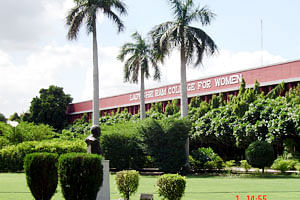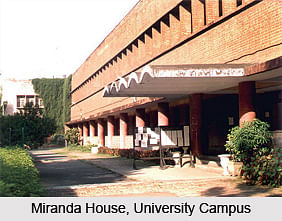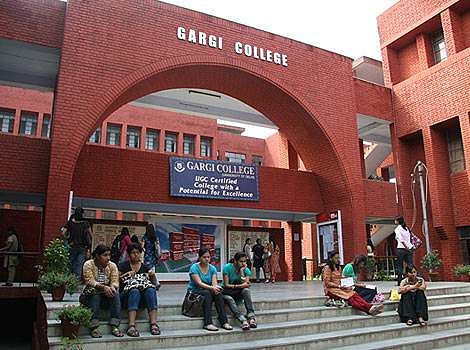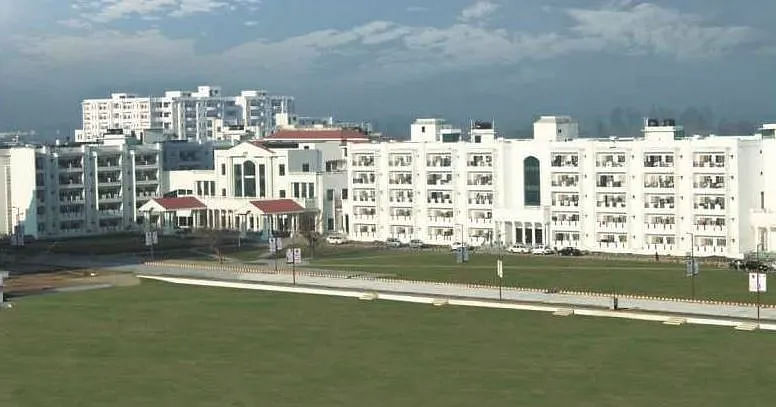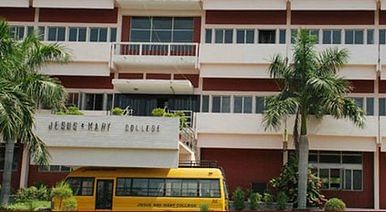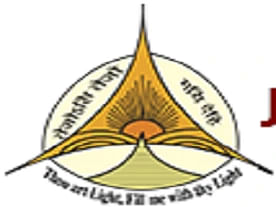B.EL.Ed Syllabus and Subjects

The syllabus for B.EL.Ed is concerned with the theoretical aspects of pedagogy and teaching along with practical approaches for elementary schooling. The B.EL.Ed subjects focus on a broad range of areas specifically on child development and pedagogy.
B.EL.Ed subjects aim to provide fundamental knowledge of child psychology and pedagogical approaches. B.EL.Ed job Scope offers wide opportunities and exposure to students looking for an adequate career path to pursue in the field of elementary education and similar sectors.
Table of Contents
Semester Wise B.EL.Ed Syllabus
The semester-wise B.EL.Ed syllabus focuses on subject-oriented knowledge which includes developing communication skills, and essential insight into elementary pedagogy. Listed below is a table of the semester-wise B.EL.Ed subjects list:
First Year B.EL.Ed Syllabus
The table below contains the list of B.EL.Ed subjects in the first year:
|
Semester I |
Semester II |
| Child Development | Core Mathematics |
| Nature of Language | Core Natural Science |
| Contemporary India | Core Social Science |
Practical Topics in the 1st Year B.EL.Ed subjects
Some of the practical topics in the first year B.EL.Ed Syllabus is given below:
- Performing and Fine Arts
- Craft, Participatory Work
Second Year B.EL.Ed Syllabus
The table below contains the list of B.EL.Ed subjects in the second year:
|
Semester III |
Semester IV |
| English I | Physics I |
| Political Science I | Mathematics I |
| Chemistry I | Geography I |
| Economics I | History I |
Practical Topics in the 2nd Year B.EL.Ed subjects
Some of the practical topics in the second year B.EL.Ed Syllabus is given below:
- Observing Children
- Self Development
Third-Year B.EL.Ed Syllabus
The table below contains the list of B.EL.Ed subjects in the third year:
|
Semester V |
Semester VI |
| English II | Physics II |
| Political Science II | Mathematics II |
| Chemistry II | Geography II |
| Economics II | History II |
Practical Topics in the 3rd Year B.EL.Ed subjects
Some of the practical topics in the third year B.EL.Ed Syllabus is given below:
- Classroom Management
- Material Development and Evaluation
Fourth Year B.EL.Ed Syllabus
The table below contains the list of B.EL.Ed subjects in the Fourth year:
|
Semester VII |
Semester VIII |
| Language | Natural Science |
| Social Science | Mathematics |
| Computer Education | Project Work |
Practical Topics in the 4th year B.EL.Ed subjects
Some of the practical topics in the fourth Year B.EL.Ed Syllabus is given below:
- School Internship
- Workshops
- Physical Education
B.EL.Ed Subjects
B.EL.Ed subjects are concerned with providing an in-depth analysis of child development, psychology, pedagogy, and communicative skills for a better scope of elementary education. The subjects list for B.EL.Ed course is listed below:
- Child Development
- Natural Science
- Social Science
- Political Science
- Mathematics
- Computer Education
B.EL.Ed Core Subjects
The core subjects under B.EL.Ed syllabus is mandatory to study irrespective of their optional Subject choices, is as follows:
- Child Development
- Contemporary India
- Nature of Language
- Core Mathematics
- Core Natural Sciences
- Core Social Sciences
- Cognition & Learning
- Language Acquisition
- Human Relations & Communication
- Language Across the Curriculum
- Basic Concepts in Education
- School Planning & Management
- Logico- Mathematics Education
- Pedagogy of Environmental Studies
- Curriculum Studies
- Gender and Schooling
B.EL.Ed Optional Subjects
Some of the elective subjects in B.EL.Ed syllabus is given below:
Year I:
- English I
- Hindi I
- Mathematics I
- Physics I
- Chemistry I
- Biology I
- History I
- Geography I
- Political Science I
- Economics I
Year II:
- English II
- Hindi II
- Mathematics II
- Physics II
- Chemistry II
- Biology II
- History II
- Geography II
- Political Science II
- Economics II
Year III:
Option A Pedagogy (One of the following):
- Language
- Mathematics
- Natural Science
- Social Science
Option B (One of the following):
- Computer Education
- Special Education
B.EL.Ed Subjects in Detail
B.EL.Ed subjects help develop communicative and interpersonal skills to understand the needs and provide guidance to children aged 6-12 years. A detailed view of a few B.EL.Ed subjects are given below:
|
B.EL.Ed Subjects |
Topics Covered |
|
Child Development |
Concepts, Issues and theories of Human Development, Pre-Natal Development, The Preschool Child, Children with Special Needs |
|
Core Mathematics |
Number and Measurement, Space and shape, Algebra, Geometrical constructions, Practical Arithmetic |
|
Cognition and Learning |
Cognitive Development, Socio-emotional Development, Physical Development, and Health |
|
Basic Concepts in Education |
Education: meaning, nature, scope, forms, Agencies of Education, Intellectual Skills, Cognitive Strategy, Motor Skills, and Attitudes |
|
School Planning & Management |
Pedagogic Studies, classroom teaching, lesson planning, Educational Direction, Educational Supervision |
|
Gender & Schooling |
Gender Stereotypes in School Textbooks, Gender Bias in Education, Classroom Interaction, Role of Teacher |
B.EL.Ed Course Structure
B.EL.Ed is taught in core courses and pedagogy course patterns are similar throughout all the colleges in the country. The 8-semester duration of the B.EL.Ed syllabus is concerned with inculcating theoretical knowledge through academic lectures and developing skills through real-time projects. The B.EL.Ed course structure is listed below:
- VIII semesters
- Core subjects
- Traditional classroom-based instructive learning
- Internship
- Projects
- Research work
- Craftwork
B.EL.Ed Teaching Methodology and Techniques
B.EL.Ed teaching methodology and techniques are concerned with developing the skills of the individual to meet the demands of elementary teaching. The teaching methods include expert training in understanding child development, and psychology counseling apart from academic lecture training, The teaching methods involved in the syllabus for B.EL.Ed is mentioned below:
- Classroom lectures
- Individual project
- Group project
- Seminar lectures
- On-field training with experts
- Teaching practice
- Practical sessions/Workshops
B.EL.Ed Projects
Students have to submit a project as a part of the B.EL.Ed syllabus to showcase the skills and approaches they have developed via training and acquire certain pragmatic and interpersonal skills. Listed below are some of the project topics in B.EL.Ed syllabus:
- Advantages of bilingual communication for elementary children
- Personalized learning approach for differently-abled children
- Development of a communicative approach between teachers and nursery students
- Analyzing the various aspects of a uniform civil code for elementary children
- Importance of play hours in Montessori education
B.EL.Ed Reference Books
B.EL.Ed reference books are concerned with providing a foundational understanding of the course.
|
Name of the Books |
Authors |
| Core Social Science | Radhika Agarwal |
| Human Relations and Communication | Radhika and Usha Agarwal |
| Hindi II year | Rakhi Prakashan |
| English I | Sunaina Singh |
Top B.El.Ed [Bachelor of Elementary Education] Colleges
B.El.Ed Fee Structure
FAQs on B.El.Ed Syllabus and Subjects
Q: What is the 1st year syllabus of B.El.Ed?
Q: What are the core subjects of B.EL.Ed?
Q: What are the practical subjects of B.EL.Ed?
Q: What are the important books for B.EL.Ed?
Q: What is the course structure of B.El.Ed?




